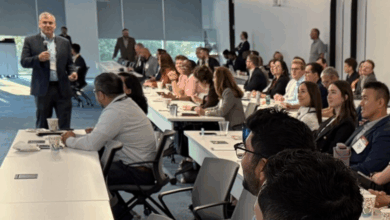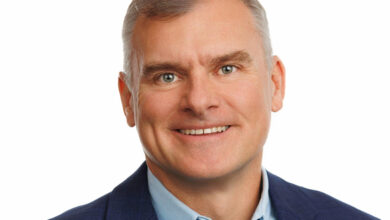Guest editorial: Who broke this? The fine art of finger-pointing when a rig fails

Driven by the natural desire to identify what went wrong, blame is the predisposition of our dysfunctional industry. Instead of being grounded in a model of continuous improvement, we structure our organizations around the protection of proven business models and motivate ourselves by successfully adjudicating blame around us.
Bottom line – we don’t reward continuous improvement, instead more highly valuing the firefighting spirit that can keep us out of trouble and ultimately ensure our survival. However, survival firefighting, while sustainable, isn’t evolutionary. Being a manufacturer at the lower part of the food chain, we often face skilled finger-pointing that leads us to patch situations that could have a much better outcome for the whole industry if we had just opened the conversation and questioned the model in which we operate. Therefore, it’s time to grow up from our childish hierarchy and consider moving out of the house of our fathers and establish a new way of being.
Changing the current “best in class” measure for drilling rig uptime will mean a change in our behavior and, worse, it may need a change of business model. But our industry is not unique in its predicament. If you’ve ever flown on a plane, ridden in an elevator, or used a bank in the 21st century, then you’ve used a service provided by a business that made the difficult but very necessary transition from manufacturer to provider of integrated systems with uptime compensation for the product.
This transition can be likened to catching a cab at the airport and trusting in “the luck of the draw.” Your comfort is a direct correlation to the quality of the air conditioning, windows working, price, smell, personal safety, bag handling, etc, and we are all hoping we get lucky! So if we don’t like the experience, we only have ourselves to blame for not changing the paradigm. Complaining and assigning blame won’t alter future cab rides, and nothing will change unless you decide to change the model, so it all begins by no longer getting in the cab and planning to do things differently when you go through this experience again.
It is the same with our industry. We love to describe the problem, but no matter who you are in the process – the cab driver, the cab company, the passenger, or the cab manufacturer – we all have to adhere to a roundtable agreement that acknowledges that just identifying the problem isn’t satisfactory. This behavior begins with a definition of the expectations, and if necessary, a willingness to give this new way a sustainable method to make the solution work.
As in our personal lives, the consistent theme in our troubled relationships is ourselves. The missing ingredient, our ability to communicate effectively, describe our needs clearly, and understand that valuing others’ needs is paramount to a more healthy being.
We have the same issue within our drilling status quo. After many years of participating in the manufacturers, the drillers (drilling contractors/service companies) and operators relationship, a misaligned business model has become self-evident, and the usual discontentment and frustrations seemed like an unavoidable reality.
Change is no longer an option for our drilling business if we want a different result. NPT reduction sits at the core of our behavior and has to be identified as futile, so the issue is where the uptime sits in the business model. A successful investment cycle rewards an operations manager for doing their best to produce under budget and with maximized uptime. Ultimately, if change is to come, it will be led by the oil company, putting his hand up first and leading the way for the other players to come to the table and solve the problem.
But this is not the end of the story. Describing the problem is easy, so I am pleased to report a positive step forward by a group of oil company majors initiating a roundtable discussion with drilling contractors and a large equipment manufacturer. Their goal is to get everyone’s hand in the air saying, “I have a part to play in making the change occur for a new result.”
These meetings, affectionately called “Top Gear,” have swung from the usual blame game to a new understanding that we have to value uptime and reward it. New investment has to happen and new operating models considered if we are going to have different results. The ensuing conversations have been healthier than we have seen and the momentum is beginning to create interest and drive.
When you step outside the drilling world and look to the other “critical service” businesses, it becomes clear that somehow others have brought levels of reliability to levels that go far beyond our best in class. Many like to look at the glass as half-full and say with the complexity and ruggedness of application, we deserve commendation over condemnation in the area of NPT. However, the critical factor in change is crisis. As long as we believe that firefighting is the noblest predisposition for our people, we will continue to be great at managing the crisis without questioning our part in sparking the flames.
David Reid is global account vice president E&P business & technology for National Oilwell Varco.
When a rig fails, who is to blame? David Reid, global account vice president E&P business and technology for National Oilwell Varco, delineates the repercussions of finger-pointing during a presentation at the IADC World Drilling 2011 Conference & Exhibition on 16 June in Copenhagen, Denmark.




